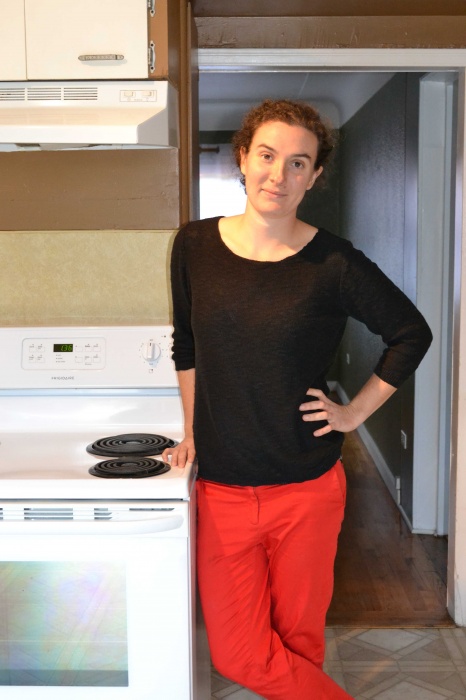The Shelbourne Community Kitchen, run by Camosun alumnus Kim Cummings, has received unanimous support from Saanich council to move to a permanent home at 3541 Shelbourne Street.
After using several temporary locations since April of this year, the kitchen was granted a temporary use permit that allows it to utilize the Shelbourne location for three years.

A 2012 graduate of Camosun’s Professional Cook 1 training program, Cummings founded Camosun’s FarmBox club, which provided locally grown organic produce to students at manageable prices, on campus. Now, as program director for the Shelbourne Community Kitchen, she is in charge of the day-to-day operations of the Kitchen.
“A community kitchen is a little bit different than a soup kitchen,” explains Cummings. “Typically in a soup kitchen a few people cook for quite a lot. [The users] won’t be involved in the cooking. They will come and they will eat and they will leave.”
Cummings says this differs from a community kitchen, where users come to be part of a group that is cooking for themselves as opposed to coming just to eat.
“A community kitchen is about skills development,” she says. “It’s about having the people who are going to be accessing the food help to prepare, share, and clean up after the meal all together. It’s a way people can develop their cooking skills and socialize.”
The kitchen (which is supported by three local churches and two community associations, and received a three-year grant from the Lutheran national body) also provides various food support programs, ranging from basic kitchen skills to gardening techniques and strategies, designed to combat food insecurity in the community.
The kitchen promotes access to food and food literacy through its four “keys”: the pantry, the kitchen, the garden, and connecting people to resources. Sometimes, part of that process involves people connecting the kitchen to their resources.
“Earlier this year we had a resident from Gordon Head offer their backyard for us to grow food for our programs,” says Cummings. “We established that over the summer, and we’ve been pulling produce from it ever since. We have a large garden planned at the new site, which will be an opportunity for people who are coming to our program to be able to help maintain, grow, harvest, and prepare some of the produce that they are helping to make happen.”
The focus of the skills development depends on the needs of users of the kitchen, explains Cummings. For example, some programs might focus on how families can make the best of their time in the kitchen.
“Thinking about being in a position of a busy family with a variety of kids and a small food budget,” she says, “how do you make that work for you? How do you take the limited time that you have in the preparation of meals to really make it go as far as it can?”
Camosun College Student Society external executive Rachael Grant sees Cummings’ success as an example of the interconnectedness between school and community.
“Cummings really reflects how postsecondary education is not just a personal investment; it’s an investment in the community,” says Grant. “You better yourself but you also pass that on to the community at large.”


Showing people how to depend on themselves and also help others out toward their independency. How can anyone ask for more.